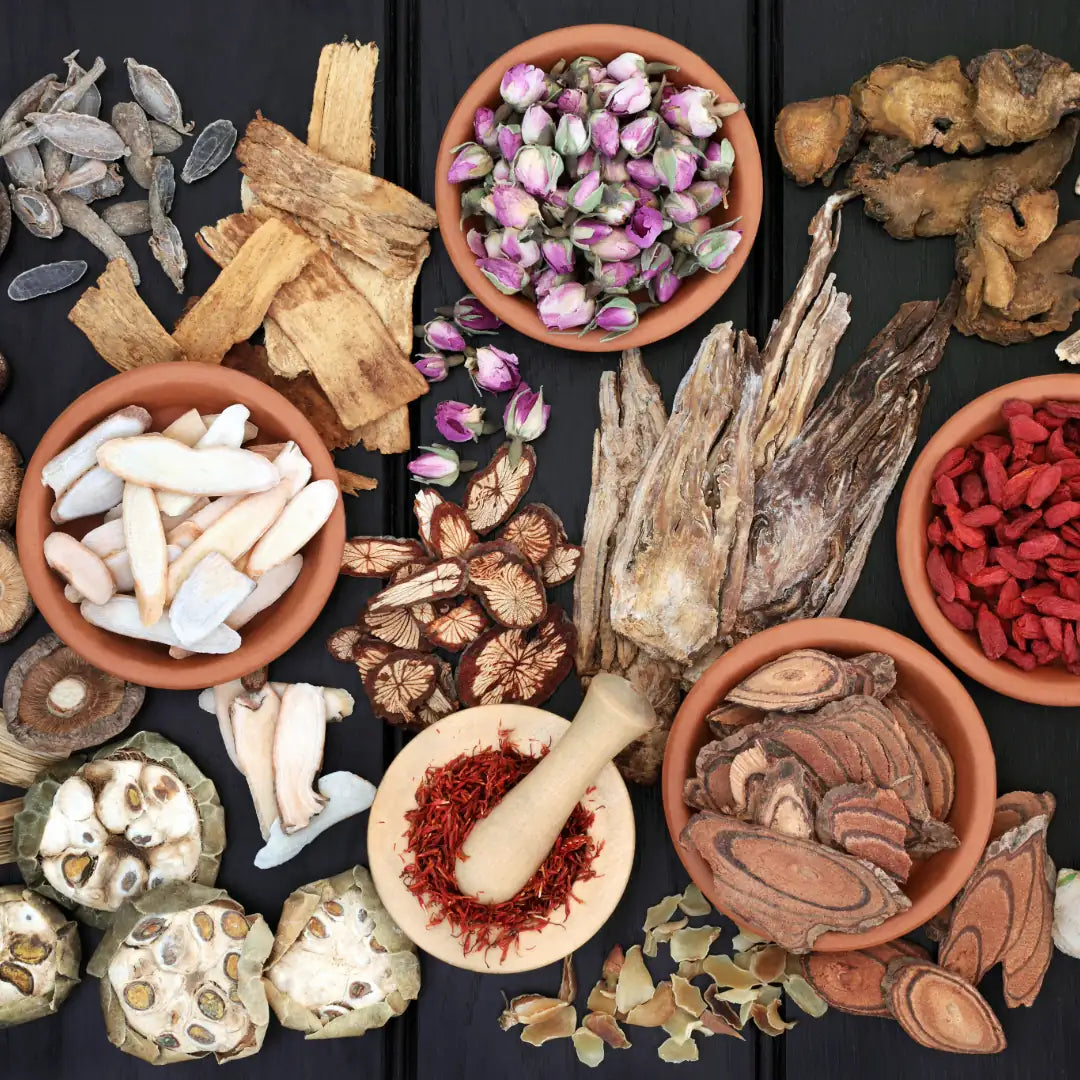Have you ever walked into a space where the air feels alive with the soothing scents of lavender, eucalyptus, or sandalwood? Aromatherapy, the art and science of using essential oils and aromatic substances, has a history as rich and fragrant as its scents. Complementing this is the timeless tradition of incense, a powerful tool for transforming spaces and uplifting the spirit.
In this blog, we’ll dive into the fascinating history of aromatherapy, the usage of incense, and how these ancient practices have evolved into essential parts of modern wellness.
What Are the Exact Origins of Aromatherapy?
Aromatherapy’s roots can be traced back to ancient civilizations where natural ingredients and essential oils weren’t just luxuries—they were necessities for health, spirituality, and everyday life. The earliest records point to civilizations like the Egyptians, who harnessed the power of essential oils in embalming and religious ceremonies. This wasn’t a fringe practice; it was a cornerstone of their culture.
Key Points:
- Ancient Beginnings: Essential oils were extracted from plants using rudimentary yet effective methods. These natural ingredients became central to healing, preservation, and ritual.
- Global Convergence: While the Egyptians might have perfected the art of perfumery, similar practices emerged independently in China, India (notably in Ayurveda), and Greece. These cultures contributed unique methods and philosophies that would eventually weave together to form what we now know as aromatherapy.
- Organic Legacy: Even back then, sustainability and ethical sourcing of natural ingredients were essential. Although not defined by modern standards, these practices underscored an early understanding of nature’s bounty and balance.
How Did Ancient Egyptians and Other Civilizations Use Essential Oils?
The ancient Egyptians are legends in the annals of aromatherapy. Their mastery over natural ingredients wasn’t just for show—it was practical, spiritual, and medicinal.
Egyptians:
- Mummification & Rituals: Essential oils played a crucial role in embalming, aimed at preserving the body for the afterlife. Oils like myrrh and frankincense were prized not only for their fragrant allure but also for their antimicrobial properties.
- Daily Life and Medicine: Beyond sacred rituals, Egyptians incorporated essential oils into their daily health routines, using them as antiseptics and to treat minor ailments. The holistic approach to well-being that defined Egyptian culture laid an early foundation for natural wellness practices.
Other Civilizations:
- Greeks and Romans: The Greeks adopted these practices, further refining the extraction and application of essential oils. The Romans later embraced aromatherapy in their baths and public spaces, blending it with their advanced medicinal knowledge.
- Eastern Traditions: In India and China, essential oils were integral to Ayurveda and traditional Chinese medicine. These cultures viewed aromatherapy as a path to balance the body’s energies, a concept that remains influential in today’s holistic wellness movement.
Who Are the Pioneers of Modern Aromatherapy?
The leap from ancient ritual to scientifically backed therapy came with a few trailblazers who reimagined traditional practices. The term “aromatherapy” itself gained prominence in the 20th century, largely thanks to French researchers who elevated essential oil studies into a disciplined field of science.
Notable Figures:
- René-Maurice Gattefossé: Often credited with coining the term “aromatherapy” in the early 1900s, Gattefossé’s experiments with lavender oil laid the groundwork for linking essential oils to skin health and healing.
- Jean Valnet: A French physician who explored the antimicrobial and healing properties of essential oils during World War II, Valnet’s work propelled aromatherapy into the spotlight as a legitimate therapeutic practice.
Their contributions solidified aromatherapy as a blend of art and science, transforming it from ancient folklore to a modern modality supported by clinical research and empirical evidence.
What Is the Science Behind Essential Oils?
The magic of aromatherapy isn’t just in its rich history—it’s also in the robust science that explains how essential oils interact with our bodies. Modern research has begun to demystify these natural compounds, revealing a complex interplay of chemistry and biology.
Scientific Insights:
- Molecular Interactions: Essential oils contain a variety of bioactive compounds such as terpenes, phenols, and esters. These molecules can penetrate the skin and, through inhalation, interact with the brain’s limbic system—the emotional center of the brain.
- Therapeutic Effects: Studies have shown that these compounds can reduce stress, improve mood, and even have antimicrobial properties. The science behind these effects is evolving, with ongoing research exploring the molecular pathways and physiological responses.
- Evidence-Based Validation: While anecdotal evidence supported aromatherapy for centuries, modern studies are now quantifying its benefits, ensuring that this age-old practice meets contemporary standards of safety and efficacy.
How Do Historical Practices Influence Modern Aromatherapy Techniques?
Modern aromatherapy is a direct descendant of ancient practices, yet it’s also a product of innovation and scientific refinement. Here’s how historical techniques have shaped the industry today:
Bridging the Past and Present:
- Extraction Methods: Techniques such as steam distillation and cold pressing have been refined over millennia. Modern equipment now ensures that essential oils are both potent and pure, staying true to the organic, natural ingredients prized by ancient civilizations.
- Holistic Approach: The ancient view of wellness as a balance of body, mind, and spirit continues to inform modern practices. Today’s aromatherapy embraces this holistic mindset, integrating it with advancements in biochemistry and pharmacology.
- Cultural Synthesis: The diverse cultural influences—from Egyptian embalming rituals to Ayurvedic practices—continue to inspire modern aromatherapy blends and treatment protocols. This global tapestry of knowledge makes today’s essential oil therapies both diverse and universally appealing.
What Cultural Myths Have Shaped Our View of Aromatherapy?
Aromatherapy has long been shrouded in mystery, with myths and legends adding layers of intrigue to its practice. Some of these narratives have propelled its popularity, while others have led to misconceptions.
Debunking the Myths:
- Myth vs. Reality: A common myth is that aromatherapy is merely a placebo or a fad for the spiritually inclined. In reality, its roots are deeply embedded in practical, empirical applications. Historical evidence shows that essential oils were vital in ancient medicine and continue to have measurable benefits.
- Cultural Lore: Stories of secret recipes and mystical elixirs abound, often romanticizing the practice. While these tales add to the allure, they can sometimes obscure the real science and craftsmanship behind essential oil production.
- Modern Misinterpretations: Today’s market sometimes overhypes the benefits of aromatherapy without sufficient scientific backing. It’s important to differentiate between well-documented therapeutic effects and exaggerated claims.
Are There Any Risks Associated with the Historical Use of Essential Oils?
While ancient cultures revered essential oils for their healing properties, modern science reminds us that “natural” does not always mean “risk-free.”
Safety Considerations:
- Allergic Reactions: Some individuals may experience allergic reactions or skin irritations. Historically, there was limited understanding of these risks, but today we have guidelines for proper dilution and usage.
- Toxicity Concerns: Not all essential oils are created equal. Some can be toxic if ingested or improperly applied. The evolution of quality standards and ethical sourcing practices now helps mitigate these risks.
- Interaction with Medications: Essential oils can interact with conventional medications, a factor that ancient practitioners could not have foreseen. Modern aromatherapy emphasizes the importance of consulting healthcare professionals when integrating essential oils into treatment plans.
The historical use of essential oils was largely based on trial and error. Today’s safety protocols are the result of centuries of accumulated knowledge, ensuring that when used correctly, aromatherapy is both effective and safe.
How Has the Popularity of Aromatherapy Shifted Over the Decades?
Aromatherapy has had a rollercoaster journey—from revered ancient practice to a modern wellness trend that sometimes borders on commercial hype. Its popularity has ebbed and flowed with cultural shifts and scientific discoveries.
Evolution of Popularity:
- Ancient Reverence: In civilizations like Egypt and Greece, essential oils were indispensable. They were integrated into daily life, health rituals, and spiritual ceremonies.
- Modern Revival: The 20th century saw a renaissance of interest, spearheaded by French pioneers who validated essential oils through scientific research. This period marked the transition of aromatherapy from a mystical art to a field of study grounded in evidence-based practice.
- Contemporary Trends: Today, aromatherapy is a staple of the wellness industry. It’s embraced by those seeking natural, holistic alternatives to conventional medicine. However, its rise in popularity has also led to a flood of products and practices—some rooted in genuine tradition, others more superficial.
- Sustainable and Ethical Practices: Modern consumers demand transparency and authenticity. This has pushed the industry to uphold the highest standards in natural ingredient sourcing and sustainable production practices—a nod to the practices of ancient civilizations that respected and worked in harmony with nature.
Aromatherapy is more than just a trendy wellness buzzword—it’s a rich tapestry woven from ancient rituals, cultural exchanges, and modern scientific breakthroughs. From the sacred ceremonies of the Egyptians to the pioneering work of French researchers, the journey of essential oils is a testament to human ingenuity and our enduring quest for natural well-being.
Embrace the history, understand the science, and appreciate the nuanced evolution of aromatherapy. It’s not just about enjoying a pleasant scent. It’s about connecting with centuries of wisdom and harnessing nature’s power in a way that’s both timeless and cutting edge.




